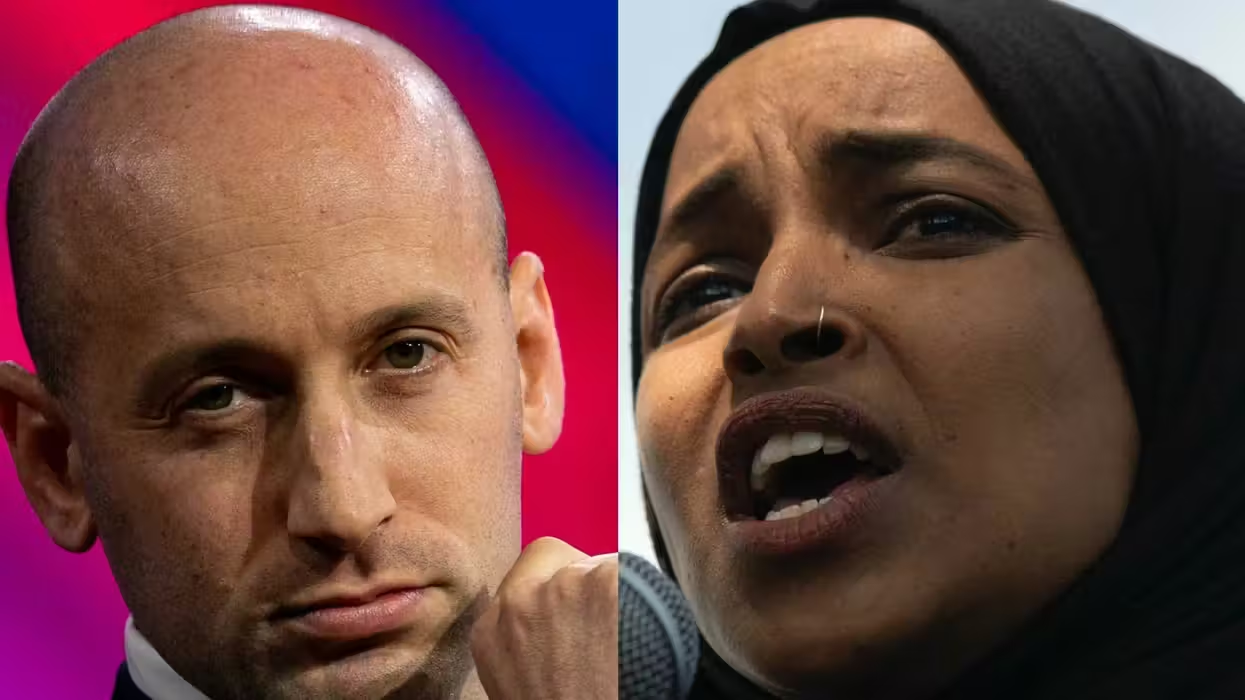
© 2025 Blaze Media LLC. All rights reserved.
Economic warfare is as old as war itself. It has played a significant role in every major conflict of the past several centuries. The British blockades of the 1700s and the French embargoes under Napoleon gave way to more sophisticated techniques such as Nazi counterfeiting in World War II. The goal in each case was to destabilize an enemy’s economy in order to gain advantage in war. We used to be rather sophisticated at the effort ourselves. Franklin Roosevelt had a Board of Economic Warfare during the Second World War. Ronald Reagan used economic means to help win the Cold War.
Unfortunately, with the fall of the Berlin Wall in late 1989, it appears that we deemed the Cold War to be concluded. The prevailing American sentiment became that the global economy was an opportunity for growth as a “peace dividend.” Economic warfare was an arcane concept. Our goal was to Americanize the world. We wanted everyone to become “capitalists” with pure economic motivations, promoting peace, harmony, and globalization.
While the economists were preaching global capitalism, the defense establishment began spending our newly enhanced wealth to develop increasingly sophisticated technology-based weaponry. The United States military budget became globally dominant. No nation on earth was able to match our sophistication as shown in the first Gulf War. That is perhaps the primary reason that two colonels in the Chinese People’s Liberation Army in 1999 proposed a new warfare doctrine—Unrestricted Warfare. Their message was simple: Americans are “slaves to technology,” and thus unable to imagine other forms of fighting, including economic warfare. They understood that the only way to beat America was to fight on a different battlefield.
Unfortunately, the Chinese colonels were remarkably prescient. Even as we have continued to develop new and better technological weaponry, we seemingly forgot the lessons of economic warfare. This point was made to me personally when I suggested to the Defense Department that our financial markets themselves could be exploited using secret weapons such as credit default swaps, naked short selling, leveraged ETFs, dark markets, sovereign debt, and a host of other complex financial instruments. Just as predicted, defense, security, and intelligence experts could grasp the latest missile guidance system and maybe even cyber warfare but seemed dumbfounded by financial instruments. When I began to show evidence that our stock market could be attacked by terrorist-sponsored bear raids, their eyes glazed over. This wasn’t their job.
The good news here is that some in the Pentagon had enough interest to commission me in early 2009 to write the report, “Economic Warfare: Risks and Responses.” This report presented a hypothesis that the 2008 market collapse could have been triggered as an act of financial terrorism. There was no doubt in the conclusion. Even after significant scrutiny at the highest levels, it became obvious that our markets were and remain vulnerable to such an attack, that it could be done without detection, and that the net result would be catastrophic. We clearly have enemies with the motive, means, opportunity, and knowledge to make it happen. Despite this reality, I was told in numerous locations that this issue “wasn’t in their swimming lanes.” In other words—not their job.
Visits to Wall Street and financial regulators brought an equally discouraging response. The free market economists simply couldn’t fathom the idea that someone might want to mess with their playground. After all, they had even enlightened the Communist Chinese. In their thinking, no one would purposefully disrupt market efficiency because it would ultimately cost them money. From this view, the PLA colonels’ idea of causing a stock market crash as a weapon of economic warfare was ridiculous. After all, wouldn’t harming our economy also hurt Chinese exports and thus hurt their economy? The watchdogs of the market view their primary role as guaranteeing that the markets remain open and efficient. They assume that all market activity is driven by economic motives and that the markets are always right. Preventing financial terrorism or economic warfare? Not necessary and certainly not their job. Not even the Financial Crisis Inquiry Commission, charged with uncovering the causes of the 2008 collapse, investigated the role of financial terrorism.
For the most part, in the United States there is currently a divide between those focused on guns and those focused on butter. There is no such separation in places such as Russia, China, Iran, and Venezuela. In fact, all of our potential enemies understand the benefits of integration between the two disciplines. They realize, as did Ronald Reagan and Franklin Roosevelt before him, that the defense infrastructure is funded by the economy. This understanding is now beginning to dawn on our Congress and presidential candidates who are staring down at a $15 trillion debt and continuing trillion-dollar deficits.
With well over a hundred briefings at the highest levels in the Pentagon, inside the Beltway, and on Wall Street, I have been told dozens of times that my warnings of financial terrorism and economic warfare, although credible and important, seemingly belonged somewhere else. Sadly, I wasn’t the only one to experience this frustration. After my report for the Defense Department was leaked to the public last March (by someone inside the Pentagon according to press reports), I was contacted by a foreign government official and others asking what agency was charged with monitoring and preventing financial terrorism. Some assumed that I was the government contact and were frustrated that no official seemed focused on this very real risk. This matches my experience; senior people telling me that it wasn’t their job. Surely someone else was responsible. Yet, no single agency is charged with this task and those agencies which could address it tend to be focused in other directions. Fortunately, there have been a few positive exceptions and in those cases I have been able to transfer a wealth of data, information, and education on the topic. Some very sharp people have begun to take notice. In addition, a few insightful congressmen have begun to press for focus on this very important area. That’s the good news.
My book, Secret Weapon, concludes with a simple thought: “As a nation, we must acknowledge the risks of economic warfare and financial terrorism and seriously address them. The future of our currency, our economy, and our way of life may depend on it.” Given that importance and an 8.5% unemployment rate, surely we can find some quality people who want the job.
Kevin D. Freeman is an investment manager and author of a paper for the Department of Defense, “Economic Warfare: Risks and Responses” (2009) and Secret Weapon: How Economic Terrorism Brought down the U.S. Stock Market and Why It Can Happen Again (Regnery, 2012).
Want to leave a tip?
We answer to you. Help keep our content free of advertisers and big tech censorship by leaving a tip today.
Want to join the conversation?
Already a subscriber?
more stories
Sign up for the Blaze newsletter
By signing up, you agree to our Privacy Policy and Terms of Use, and agree to receive content that may sometimes include advertisements. You may opt out at any time.
Related Content
© 2025 Blaze Media LLC. All rights reserved.
Get the stories that matter most delivered directly to your inbox.
By signing up, you agree to our Privacy Policy and Terms of Use, and agree to receive content that may sometimes include advertisements. You may opt out at any time.






